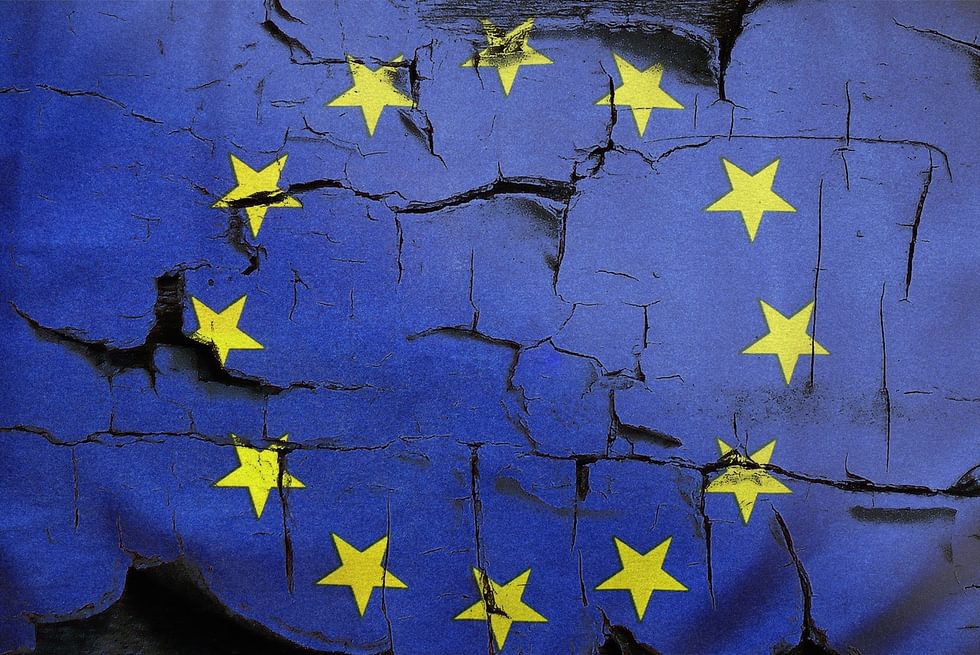Eat, Pray, Give Birth—But Not If You’re Muslim
From the Series: Europe in the Balance
From the Series: Europe in the Balance

Underneath the swings and trends in European politics—these days toward populism and ecology, not so long ago toward soft versions of diversity—is the constant critique of the everyday lives, indeed the very presence, of European Muslims. With uncanny strategic smarts, anti-Muslim activists zoom in on the intimate dimensions of social lives—giving birth, eating—to whip up anti-Muslim sentiment, confirm nativist prejudice, and unsettle the comforts of home and neighborhood.
Attempting to refute arguments about assimilation, anti-Muslim writers claim that Muslims will continue to have high birth rates because the Prophet told them to and because it serves the Islamist strategy to conquer Europe. Pseudo-census reporting is central to these claims. The viral “Muslim Demographics” video on YouTube tells viewers that France has 1.8 children per family but “Muslims, 8.1 children per family” and that “in just 39 years, France will be an Islamic Republic.” Putting aside the faulty data—France does not even collect demographic data by religion—these arguments have two deficiencies.
First, total fertility rates (TFR) are falling in many of the Muslim-majority countries sending people to Europe. In Morocco, for example, from 1985–2003 the TFR fell from 4.5 to 2.5, and is projected to fall to 1.9 by 2030–2035, thus approximating European rates.
Second, Muslim women born in European countries are doing precisely what demographers predict: bearing fewer children. As a result, the Pew Research Forum projected that the percentage of Muslims in Europe would grow from 5 percent in 2016 to 8 percent in 2030, and under a scenario of medium immigration, to 11 percent by 2050, possibly followed by decelerating growth.
But in the meantime, the theme of a “great replacement” is central to France’s New Right publications, even as it has become a meme that travels across great distances, losing local entanglements but acquiring global ones. Puzzling to many American viewers were the cries of “Jews will not replace us” shouted by white supremacists at the Unite the Right rally held in Charlottesville, Virginia, in August 2017. Propagated by Identity Evropa, a college campus–based white supremacist, alt right group founded by Nathan Damigo of Oakdale, California, it was inspired by the European “great replacement” cry.
Halal has also come to stand for the stealth Muslim invasion of Europe. As with demographics, the halal fear has its broad form and its country specifics. The broad: Minority citizens among us who refuse to consume otherwise are forcing us all to eat halal.
In France, the public/private divide is used to think about religion and state, and particular identities versus a shared national identity. Officials regularly call out some halal shops for an alleged form of discrimination exercised by Muslims in not stocking non-halal products.
In 2010, the Quick fast-food chain dedicated eight restaurants in Roubaix, a city near Lille with a large Muslim population, to serving only certified halal foods. Politicians denounced Quick for “imposing on all clients halal food without the possibility of choice,” which was “contrary to the secularity of French society.”
These scandals erupt regularly in the greater Paris region. In 2016, the mayor of Colombes, northwest of Paris, ordered a Good Price mini-market to either sell alcohol and pork or shut down. Said the mayor’s chief of staff, “We want a social mix. We don’t want any area that is only Muslim or any area where there are no Muslims.” The French State finds in halal shops a refusal of the mixité seen as the French social project, and a promotion of its evil twin, communalism (communautarisme).
By contrast, in the Netherlands, non-Muslim Dutch entrepreneurs started Mekka Foods in the 1980s in order to sell halal versions of Dutch foods so that no one was excluded from eating them. When animal rights groups objected that some animals were killed for halal marketing without stunning, supermarkets responded by saying they would market only to Islamic communities. The Dutch government has recently followed suit, drafting a proposal to limit sales of halal or kosher foods to “religious communities.”
The new rules also would not allow halal exports, following a series of scandals, as when a 2010 Dutch TV broadcast had found that in a sample of ten döner kebab from different shops, all purportedly 100 percent lamb and halal, only one was 100 percent lamb, whereas the nine others had various combinations of mutton, beef, turkey, chicken—and in one case, 100 percent pork! The government worried that such scandals would weaken trust in Dutch exports generally.
So, whereas in France the opening of a halal-only shop in a neighborhood threatens mixité, encourages communalism, and discriminates against non-Muslims, in the Netherlands it may soon become the case that only in Muslim communities could halal meat products be sold. The claim is to defend Dutch values (and export markets) by walling off some communities and allowing some objectionable things (like animals killed without stunning)—but only if they remain in Muslim neighborhoods, with no mixité of distribution networks.
Europe’s fears and divisions, projected onto birth rates or forced halal eating, bleed over into other regions of the world. But as they move they also are reframed to fit nation-specific logics and resentments. Chillingly, they adapt.